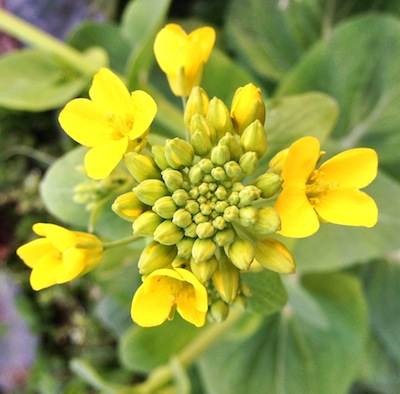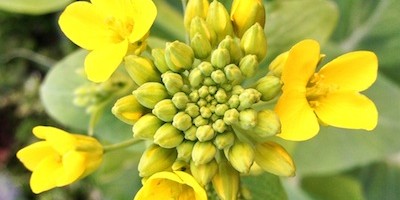
Canola is a complex hybrid of other plants in the Brassica genus. Now that its genome has been decoded, breeders can use new tools to create more valuable cultivars (strains) of the crop. (Photo credit: Honeyhuyue, via WikiMedia Commons)
Scientists have decoded the genome of Brassica napus, the plant that gives us canola oil. Developed in the 1970s by researchers from the University of Manitoba, Agriculture and Agri-Food Canada (AAFC), and National Research Council (NRC) in Saskatoon (“canola” stands for CANadian Oil Low Acid) the crop has gained huge commercial importance.
Because Brassica napus is a hybrid and contains whole chromosomes that originally came from other species, including Brassica rapa (field mustard) and Brassica oleracea (cabbage), it has a complex genome that has proven difficult to map.
Now that the genome has been untangled, it could point the way toward new modifications that would make the plant even more desirable for the edible oil and biofuel markets.
Original research paper published in the journal Science on August 21, 2014.
Names and affiliations of selected authors

